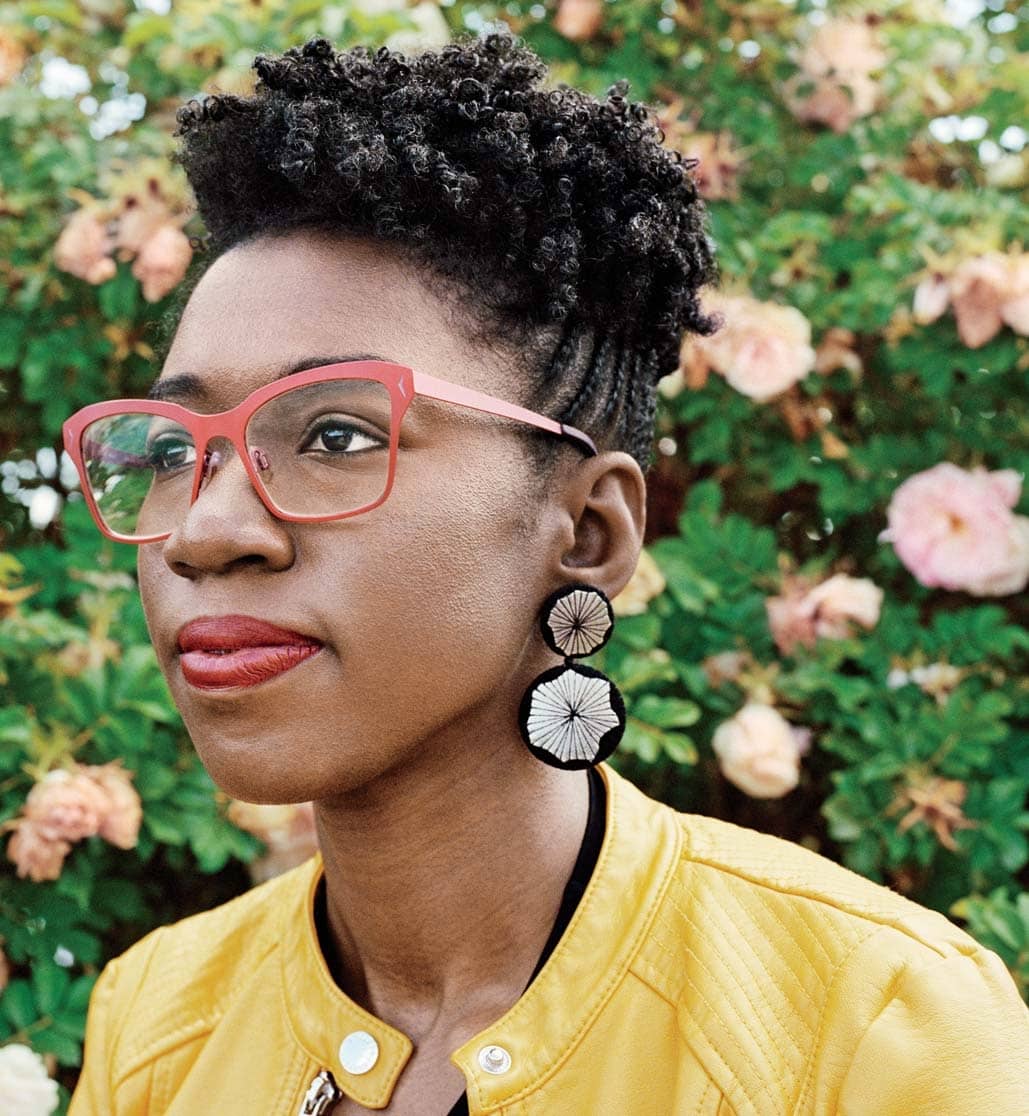
JOY BUOLAMWINI GOT JEFF BEZOS to back down.
Amazon announced in June that it was issuing a moratorium on police use of its controversial facial recognition software, called Rekognition, which it had sold to law enforcement for years. The move marked a remarkable retreat for Amazon’s famously stubborn CEO, and he wasn’t alone. IBM pledged that week to stop developing facial recognition entirely, and Microsoft committed to withholding its system from police until federal regulations were passed.
These decisions occurred amid widespread international protests over systemic racism, sparked by the killing of George Floyd at the hands of Minneapolis police. But the groundwork had been laid four years earlier, when Joy Buolamwini, then a 25-year-old graduate student at MIT’s Media Lab, began looking into the racial, skin type, and gender disparities embedded in commercially available facial recognition technologies. Her research culminated in two groundbreaking, peer-reviewed studies, published in 2018 and 2019, that revealed how systems from Amazon, IBM, Microsoft, and others were unable to classify darker female faces as accurately as those of white men— effectively shattering the myth of machine neutrality.
This story is from the {{IssueName}} edition of {{MagazineName}}.
Start your 7-day Magzter GOLD free trial to access thousands of curated premium stories, and 9,000+ magazines and newspapers.
Already a subscriber ? Sign In
This story is from the {{IssueName}} edition of {{MagazineName}}.
Start your 7-day Magzter GOLD free trial to access thousands of curated premium stories, and 9,000+ magazines and newspapers.
Already a subscriber? Sign In

THE NEW RULES OF BUSINESS TRAVEL
In the era of hybrid teams, everyone is a road warrior-not just sales teams and C-suite execs. It's part of why business travel spending is expected to finally reach, and perhaps surpass, pre-pandemic levels by the end of the year, according to Deloitte. But, as with everything, work trips are not what they were in 2019. From airlines to banks, companies are finding new ways to make business travel easier-and even a little fun.

INTELLIGENT IMPACT
BUSINESS LUMINARIES SHARE HOW AI CAN INTERSECT WITH SOCIAL MISSION.

REDDIT'S REVENGE
IN AN ERA OF AI UPHEAVAL. THE CACOPHONOUS SOCIAL HUB EMERGES AS THE HUMAN-DRIVEN INTERNET'S LAST GREAT HOPE.

SO MANY WAYS TO LOSE
In the Ozempic era, Weight-Watchers is remaking itself to be something for everyone meal-plan program and a tele-health prescription service. But have consumers already lost their appetite?

10/10 - THE 10 MOST INNOVATIVE PEOPLE OF THE LAST 10 YEARS
In honor of Fast Company's 10th Innovation Festival in September, we identified 10 industrious leaders whose groundbreaking efforts defined the past decade in business. We spoke to them about their extraordinary achievements in tech, medicine, entertainment, and more. And we explored how the impact of their work has withstood passing fads, various presidential administrations, a pandemic, and many, many quarterly reports.

The Mysterious Reappearance of the Reggie Bar
How a beloved 1970s candy got called back up to the major leagues.

Gabriella Khalil
Gabriella Khalil, creative director, answers our career questionnaire.

The Fast and the Furious
High prices at McDonald's, Taco Bell, and other chains are sparking consumer revolt.

Lost in Truncation
Lost in Truncation Generative AI was supposed to unleash our creativity. Instead, it became our cultural trash compactor. Welcome to the age of summarization.

Campus Radicals
Welcome to UATX, Austin's new well-funded and controversial anti-woke university.